Selecting the right dental lab for implant restorations is not just about product availability—it depends on core capabilities in technology, materials, quality, and communication. A lab with the right expertise ensures accurate restorations, lower remake rates, and smoother international collaboration.
Procurement teams often struggle to separate labs with true implant competence from those offering only general dental services. To evaluate capabilities effectively, attention should focus on:
- Experience and reputation: certifications, proven track record, industry recognition.
- Digital workflow support: CAD/CAM precision, implant system compatibility, file handling.
- Material expertise: zirconia, titanium, PMMA, hybrid ceramics, biocompatibility assurance.
- Quality assurance: standardized processes, remake rate control, compliance with ISO/FDA/CE.
- Delivery reliability: realistic turnaround times, overseas logistics, rush services.
- Collaboration and support: responsiveness, file compatibility, dedicated account management.
By examining these factors in a structured way, buyers gain confidence in selecting partners who consistently deliver precise implant restorations and reliable service. This reduces procurement risk, improves treatment predictability, and builds supply chains that support long-term growth.
Experience and Reputation of the Dental Lab
Choosing a dental lab with strong experience and a trustworthy reputation reduces procurement risk and ensures smoother implant restoration outcomes. Buyers often rely on external signals—such as certifications, case history, and industry recognition—to identify reliable partners before committing to collaboration. This is especially important for overseas procurement, where on-site verification is harder and trust must be built through transparent credentials and consistent performance.
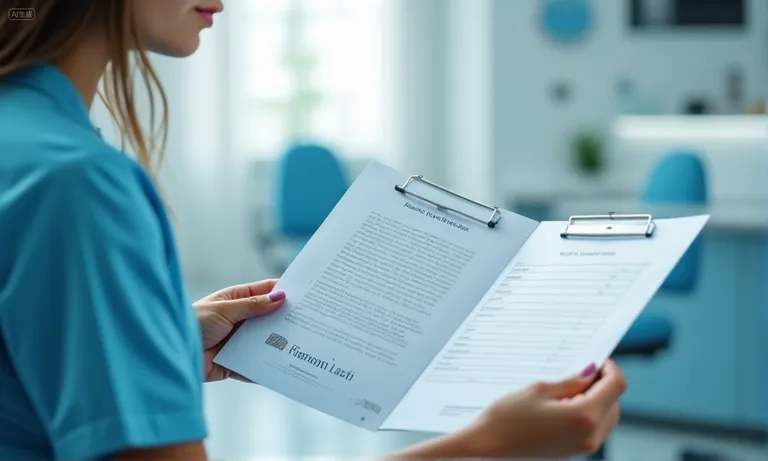
dental-lab-experience-reputation-check
Why does industry reputation matter when outsourcing implant cases?
Industry reputation works as a shortcut for risk assessment when clinics or distributors outsource implant cases overseas. A lab recognized in professional networks or recommended by peers is more likely to maintain consistent quality. In our experience, European distributors often ask whether we have served clients in markets similar to theirs, because they want to minimize the learning curve in new collaborations.
How do certifications and affiliations validate lab credibility?
Certifications such as ISO 13485, FDA registration, and CE marking provide assurance that the lab follows standardized processes and compliance protocols. Professional affiliations—like partnerships with dental associations or implant system providers—add another layer of validation. Procurement teams usually request scanned copies of these certificates before approving a new supplier, and maintaining updated records helps a lab demonstrate credibility quickly.
What role do reviews and proven track record play in supplier evaluation?
Reviews from clinics, DSOs, and distributors are often the most relatable indicators of performance. Procurement teams want to see evidence of on-time deliveries and low remake rates. One Australian distributor we worked with specifically asked for case references; after reviewing past implant cases we supplied for European DSOs, they felt confident to start a trial order. Reliable track records provide procurement managers with transferable evidence that a lab can adapt to different client demands.
How does case volume and years of experience affect reliability in complex implant work?
The number of implant restorations a lab handles and the breadth of its case portfolio strongly affect reliability. A lab producing hundreds of implant units monthly develops expertise in handling variations, identifying recurring issues, and refining processes. Years of experience also indicate that the lab has weathered regulatory changes, shifting material trends, and evolving digital workflows. Overseas partners often look for this accumulated know-how to reduce trial-and-error during onboarding.
Reliable experience and reputation make the initial selection of a dental lab far more predictable. Clients know they are not experimenting with an untested partner but working with a supplier that has visible proof of competence. For example, at Raytops Dental Lab, we found that overseas clinics gain confidence when they see both certifications and consistent case histories aligned with their regional standards.
Technical and Digital Workflow Capabilities
A dental lab’s digital and technical capabilities determine how seamlessly it can integrate with a clinic or distributor’s implant workflow. Compatibility with implant systems, precision from CAD/CAM tools, and smooth file handling are essential to reduce remake rates and save chair time. Procurement managers increasingly view digital readiness as a baseline requirement rather than an optional advantage.
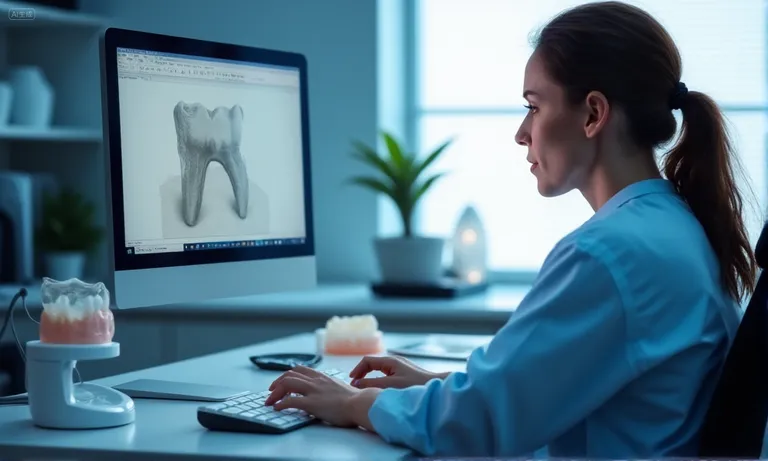
dental-lab-digital-workflow-cadcam
Why is compatibility with implant systems (Straumann, Nobel Biocare, Zimmer, MIS) critical?
System compatibility ensures that implant components from different brands can be restored accurately without adaptation errors. For example, a case designed for a Straumann connection will fail if the lab uses a mismatched library or analogue. This leads to wasted time, additional costs, and patient dissatisfaction. Overseas procurement teams often confirm upfront whether a lab supports the specific platforms they regularly use, to avoid workflow disruptions.
How do CAD/CAM tools improve implant restoration precision?
CAD/CAM systems bring reproducibility and consistency to implant cases. The benefits can be summarized as:
- Accuracy in margin definition: Digital scanning and margin detection reduce human error.
- Consistent fit across batches: Automated milling produces standardized outcomes, especially in large-volume implant work.
- Integration with verification tools: Some labs use intraoral scan cross-checks to validate digital models before production.
- Reduced turnaround time: Digital processing shortens design and production steps, accelerating delivery for overseas clients.
What should procurement teams check in a lab’s digital workflow (STL, iTero, 3Shape, Medit)?
Procurement managers often evaluate digital workflow compatibility through a checklist:
| Workflow Step | What to Check in the Lab’s Setup | Why It Matters |
|---|---|---|
| File formats | Acceptance of STL, PLY, OBJ | Ensures files from any scanner can be processed |
| Scanner compatibility | iTero, 3Shape, Medit supported | Reduces friction with clinic workflows |
| Design platforms | 3Shape, exocad, Dental Wings | Provides flexibility for implant case design |
| Data transfer | Secure portals or encrypted email | Protects patient data, meets compliance |
Evaluating these areas ensures a lab can adapt quickly to the clinic’s existing digital tools, avoiding delays in complex cases.
Labs that demonstrate advanced digital workflows offer more than speed—they provide predictability and reduced risk of communication errors. Overseas buyers working with Raytops Dental Lab have emphasized that shared 3Shape libraries and STL compatibility allowed them to onboard new implant cases without workflow redesign, saving significant time in the first trial stage.
Material Expertise and Product Range
Material selection directly shapes the clinical outcome, durability, and patient satisfaction of implant restorations. A capable dental lab must offer not only expertise in handling zirconia, titanium, PMMA, and hybrid ceramics but also a broad product range to match different indications. Buyers want assurance that their lab partner can recommend and produce the right solution for single crowns, full-arch prosthetics, or temporary cases without compromise.
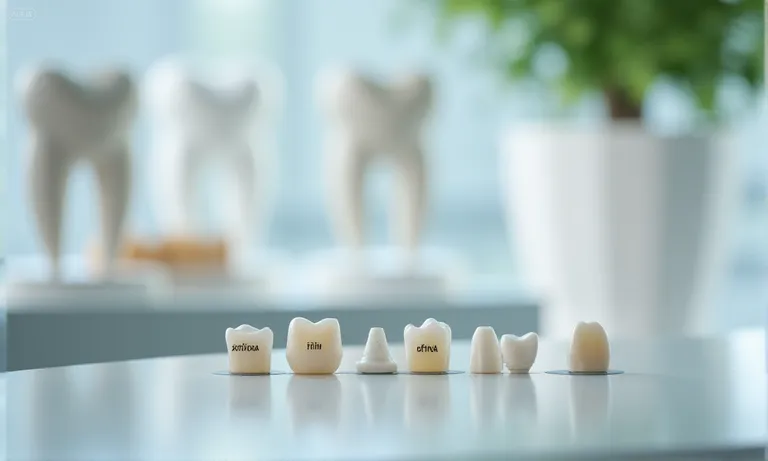
dental-lab-implant-material-comparison
Which restorative materials (zirconia, titanium, PMMA, hybrid ceramics) are best for implants?
Each material has unique advantages that fit specific implant needs:
- Zirconia: High aesthetics and strength; ideal for anterior and posterior crowns.
- Titanium: Excellent biocompatibility and durability; widely used in implant frameworks.
- PMMA: Affordable and easy to mill; suitable for temporary restorations.
- Hybrid ceramics: Balance between strength and translucency; useful in cases requiring both resilience and natural look.
Procurement teams often evaluate whether a lab can handle all four, as relying on only one material narrows treatment options.
How does material biocompatibility affect long-term clinical outcomes?
Biocompatibility directly influences patient comfort and tissue health. Poorly selected or processed materials may trigger inflammation, leading to implant failure over time. For example, titanium frameworks integrated with biocompatible ceramics tend to maintain peri-implant health, while low-grade alternatives risk irritation. Overseas buyers often request clear documentation of material sources to ensure safety and regulatory compliance.
Why does a wide product range support different implant indications?
A broad catalog means procurement managers can source all their implant needs from one lab, reducing vendor complexity. For instance:
- Single-unit crowns → Zirconia or hybrid ceramics for natural esthetics.
- Full-arch frameworks → Titanium or zirconia for strength.
- Temporaries → PMMA for low-cost short-term use.
Labs that offer multiple options provide flexibility across clinical indications, making them more attractive for DSOs or distributors who manage diverse case types.
What are the trade-offs between single-material labs and full-range providers?
The choice often comes down to specialization versus flexibility:
| Lab Type | Advantages | Limitations |
|---|---|---|
| Single-material lab | Deep specialization, possible cost savings | Limited options, less adaptable |
| Full-range provider | Covers all implant indications, one-stop sourcing | Requires broader QC systems, may have higher baseline cost |
Buyers must decide whether their implant cases benefit more from specialization or from an integrated solution that reduces the need for multiple vendors.
Labs with strong material expertise not only deliver better implant outcomes but also simplify procurement strategies. For example, overseas buyers working with Raytops Dental Lab noted that access to both zirconia and PMMA allowed them to run permanent and provisional workflows through one partner, cutting lead times and avoiding fragmented sourcing.
Quality Assurance and Process Reliability
For overseas buyers, quality assurance is one of the strongest predictors of a lab’s reliability. Consistent QA processes, internationally recognized certifications, and transparent reporting systems directly reduce remake rates and procurement risk. A lab that can prove its reliability through standardized processes makes outsourcing implant restorations less of a gamble and more of a structured partnership.
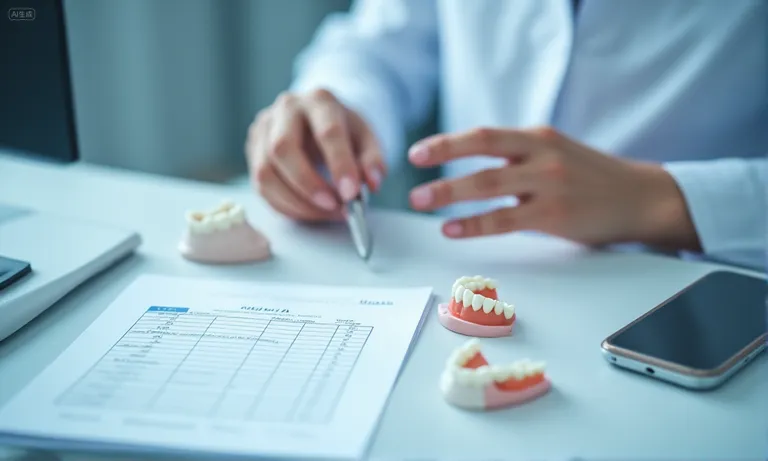
dental-lab-quality-assurance-process
What QA processes reduce remake rates in implant restorations?
Effective labs implement layered QA steps to reduce errors:
- Incoming inspection: Verify materials and components before production.
- In-process checks: Technicians review design files and milling output during production.
- Final verification: Fit, margin accuracy, and occlusion are validated before shipment.
- Feedback loop: Remake cases are logged and analyzed to prevent repetition.
This cycle allows labs to spot issues earlier and protect clients from costly reworks.
How do ISO, FDA, and CE certifications ensure consistent quality?
International certifications provide proof that a lab follows regulated quality management systems. ISO 13485 shows compliance with medical device manufacturing standards, FDA registration ensures eligibility for the U.S. market, and CE marking confirms product safety for the EU. For procurement managers, these marks simplify supplier evaluation because they demonstrate that the lab is audited and accountable to external bodies.
Why is process standardization important for international clients?
Standardized processes create predictable outcomes across cases and regions. A DSO in North America, for instance, expects the same quality level whether ordering one crown or a batch of fifty implant frameworks. Without standardization, outcomes become inconsistent, which complicates cross-border sourcing. Overseas labs that codify workflows and maintain SOPs are more trusted because they minimize variability.
How does tracking remake rates and corrective actions enhance trust?
Transparent labs track remake rates and provide corrective action data to clients. This builds credibility by showing that problems are identified and solved, not hidden.
| Metric | Why It Matters | Typical Expectation |
|---|---|---|
| Remake rate (%) | Direct indicator of lab precision | < 3–5% for implants |
| Corrective action reports | Demonstrates problem-solving process | Shared with clients |
| Audit trail | Ensures traceability of each case | Available on request |
By sharing these records, labs position themselves as transparent partners instead of opaque vendors.
Robust QA and standardized reliability are the foundations for long-term international collaboration. For example, Raytops Dental Lab has worked with distributors in Europe who specifically asked for remake rate data before onboarding. Providing transparent numbers and SOP documentation reassured them that cooperation would be stable and predictable.
Delivery Times and Logistic Capabilities
For overseas procurement, reliable delivery times and smooth logistics are as important as product quality. A lab that offers realistic turnaround schedules, understands customs procedures, and provides flexible shipping options can greatly reduce stress for clinics and distributors. Inconsistent delivery, by contrast, leads to chair-time delays, patient dissatisfaction, and higher operational risk.
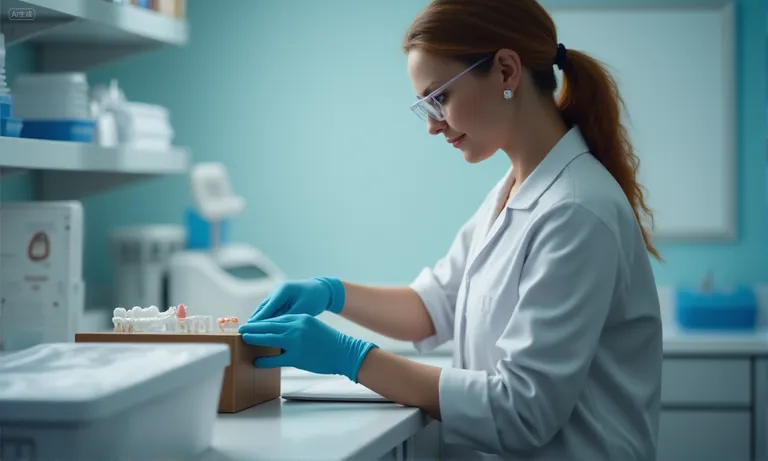
dental-lab-logistics-shipping-turnaround
What is a realistic turnaround time for different implant restorations?
Turnaround times vary depending on the type of case:
- Single-unit crowns or abutments: 5–7 working days
- Full-arch zirconia frameworks: 10–14 working days
- Temporary PMMA cases: 3–5 working days
- Complex hybrid or custom-milled restorations: 14–20 working days
Buyers should expect some flexibility depending on order volume, but labs that clearly communicate these ranges upfront create more predictable planning for clinics and DSOs.
How do labs handle shipping and customs for overseas orders?
International logistics often require multiple steps:
- Packaging: Use secure, moisture-proof materials for safe transit.
- Documentation: Include commercial invoices and HS codes for customs clearance.
- Courier selection: Partner with DHL, FedEx, or UPS for tracked international deliveries.
- Customs coordination: Provide clients with tracking numbers and estimated clearance times.
- Local compliance: Adapt documentation to meet import rules of different countries.
Labs that manage these steps smoothly save clients from unexpected delays at borders.
Do they offer rush services for urgent implant cases?
Many labs offer expedited workflows to support urgent cases, typically cutting turnaround time by 30–50%. For instance, a crown that normally requires seven working days may be delivered in three. While rush services usually come with additional fees, they provide critical flexibility when a clinic needs to meet patient deadlines. Procurement managers often ask about rush capabilities before signing contracts.
How do regional differences impact delivery time and customs clearance?
Delivery performance varies by geography, which procurement teams must factor into planning:
| Region | Typical Shipping Time | Customs Complexity | Notes |
|---|---|---|---|
| North America | 3–5 days | Moderate | FDA-related checks may extend clearance |
| Europe | 3–6 days | Moderate–High | CE-marked products pass faster |
| Middle East | 5–8 days | High | Customs procedures often stricter |
| Australia | 6–9 days | Moderate | Longer air freight distance affects time |
Understanding these differences helps buyers align order schedules with patient treatment plans.
Reliable delivery and logistics capability are what turn a dental lab from a vendor into a trusted supply partner. Overseas clinics working with Raytops Dental Lab often highlight that clear turnaround windows and customs-ready documentation reduced operational friction, allowing them to plan treatments with confidence.
Communication and Ongoing Support
Strong communication and reliable support transform a supplier relationship into a true partnership. For overseas clients, smooth file compatibility, fast response times, and dependable technical support ensure that implant cases move forward without costly delays. Long-term account management further strengthens trust and provides continuity across projects.

dental-lab-communication-collaboration-support
How does file/document compatibility improve daily collaboration?
Procurement teams rely on seamless file exchange to avoid bottlenecks. Evaluating compatibility helps prevent case rejections.
| File Type / Platform | What Clients Expect from Labs | Why It Matters |
|---|---|---|
| STL / PLY files | Universal acceptance | Avoids extra conversion steps |
| iTero / 3Shape | Direct import without errors | Faster case design turnaround |
| Encrypted portals | Secure uploads and downloads | Protects sensitive patient data |
Compatibility allows clinics to integrate their scanning workflows directly with the lab, saving valuable chair time.
Why is responsiveness and dedicated account management important?
Buyers want assurance that their cases won’t sit in a queue without updates. Key factors include:
- Response speed: Acknowledging case files within 12–24 hours builds confidence.
- Dedicated contact: Having a named account manager reduces miscommunication.
- Proactive follow-up: Checking in on complex cases helps prevent avoidable delays.
Labs that provide dedicated account management become easier partners for DSOs and distributors who handle multiple case streams daily.
What role does technical support play in resolving implant case issues?
When complications arise—such as unclear scan data or design file mismatches—labs with strong technical support can troubleshoot quickly. This may involve real-time video calls, annotated design feedback, or sending test prints before final milling. Clients value labs that act as collaborators rather than just production vendors, especially in complex implant restorations.
How does long-term account management strengthen collaboration over time?
Ongoing account management ensures continuity across cases and reduces learning curves. For example, one DSO client in North America appreciated that the same project manager followed their account for two years, remembering preferences for abutment design and turnaround timing. Continuity like this creates efficiency gains and fosters trust in cross-border cooperation.
Effective communication and dependable support are what make international partnerships sustainable. Overseas clients working with Raytops Dental Lab have highlighted that file compatibility and proactive account management reduced friction, making collaboration feel more like an extension of their in-house team.
Conclusion
Selecting the right dental lab for implant restorations goes beyond price—it requires proven expertise, strong digital capabilities, reliable QA, and transparent communication. Buyers who evaluate these factors reduce risks and gain confidence in long-term sourcing decisions. Partnering with an overseas dental lab that combines material expertise, standardized workflows, and predictable logistics ensures that clinical outcomes are accurate and consistent. For clinics, DSOs, and distributors, this approach transforms procurement from a trial-and-error process into a dependable collaboration that supports both patient satisfaction and business growth.


